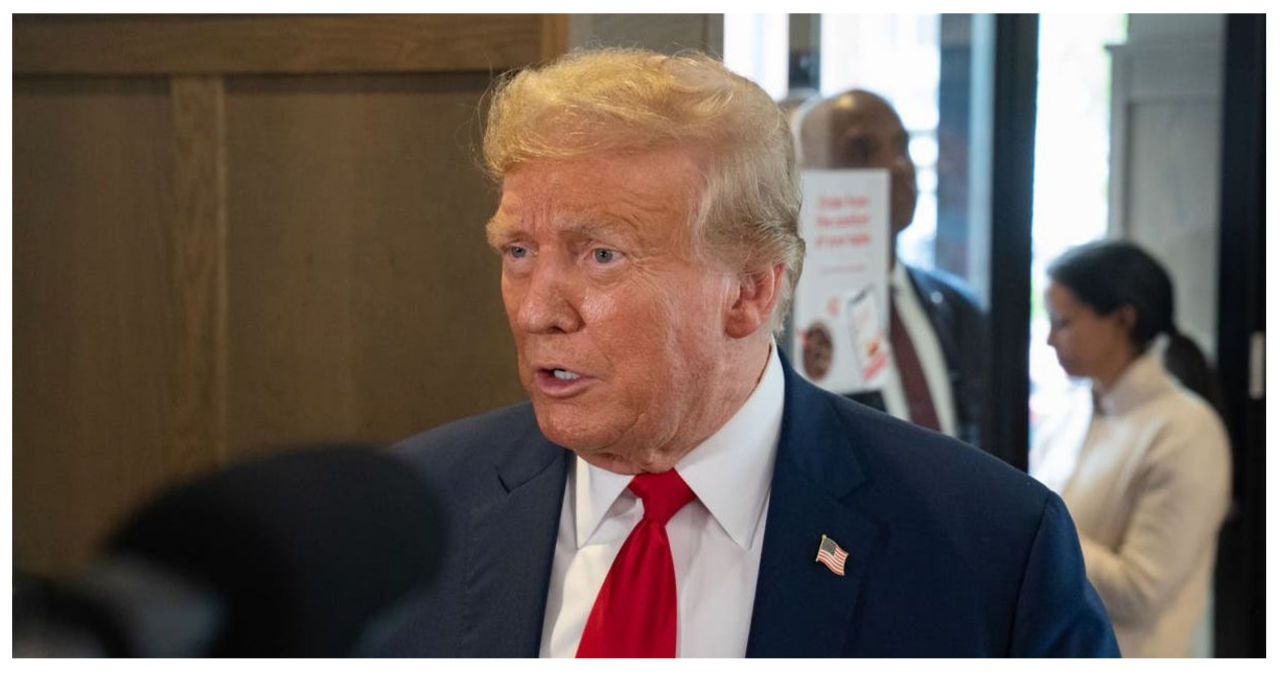Former President Donald Trump has pledged to pardon his supporters who have been accused, convicted, and imprisoned for offenses committed during the January 6 attack on the Capitol.
However, according to recent research from the anti-authoritarianism group Protect Democracy, he may not have that power even if he is reelected to the White House after this year’s election.
For some time, Mr. Trump has promised to free violent Capitol rioters, including those convicted of attacking police officers as they stormed the US Capitol in a last-ditch, desperate attempt to block the certification of Mr. Trump’s 2020 election loss to Joe Biden.
Last month, in a post on his Truth Social platform, the disgraced former president stated that one of his “first acts” in office if he wins a second term would be to “free January 6 hostages being wrongfully imprisoned.”.
He has also repeatedly referred to convicted violent offenders—ssome of whom are in prison for crimes such as seditious conspiracy—aas “horribly treated,” claiming they are political prisoners imprisoned for supporting him and his political cause.
Royce Lamberth, a Republican-appointed federal judge, stated in January that he had been “dismayed to see distortions and outright falsehoods” about the violent riot “seep into public consciousness.”.
Lamberth, who made the remarks during a January 6 sentencing, stated that he “could not recall a time when such meritless justifications of criminal activity have gone mainstream” in his 37 years as a federal judge.
During his first term, Mr. Trump also used pardons to reward supporters for their allegiance to him as well as to reimburse them for refusing to help with criminal investigations into his actions.
In the final days of his presidency, he notably pardoned his former senior White House strategist, Steve Bannon, his former national security advisor, Michael Flynn, his former campaign chairman, Paul Manafort, and his longtime acquaintance, Roger Stone. All four were convicted of federal offenses, but Mr. Trump rewarded them for refusing to turn against him.
The likelihood that Mr. Trump would return to the White House and restart similar uses of the president’s pardon authority has frightened legal experts and anticorruption activists, despite many observers claiming that the president’s pardon authority has no boundaries.
However, one of the report’s authors, Protect Democracy policy advocate Grant Tudor, claims that conventional wisdom does not hold up to inspection.
In a phone interview with The Independent, Mr. Tudor stated that the courts have had no reservations about limiting the president’s pardon power.
In one historic decision, Burdick v. United States, the Supreme Court ruled that then-President Woodrow Wilson could not unilaterally pardon New York Tribune editor George Burdick in order to eliminate the threat of incrimination and force him to testify in front of a grand jury.
The court ruled that Wilson had the authority to issue the pardon but that it must be accepted by the intended receiver for it to be effective.
Mr. Tudor added that the court discovered an “unresolved tension” between the pardon clause and the Fifth Amendment, the latter of which limited the president’s ability to pardon crimes.
He further claimed that the pardon power’s counterpart in English law, the royal prerogative of mercy, has been subject to constraints throughout its long history, citing the 1328 Statute of Northampton, which specified that the sovereign could not give a pardon if doing so would break his oath. Three decades later, the 1869 Bill of Rights prohibited the King from using pardons to disregard parliamentary acts.
Similarly, Mr. Tudor stated that pardoning January 6 rioters would violate constitutional limits since it would be a situation in which “the leader of an insurgency is pardoning fellow insurrectionists.”.
“We’ve encountered many situations where presidents have pardoned those who took up arms against the United States. In all of those instances, the point was to quell unrest, not to sanction it,” he went on to say. “It would be the first time that a president who is himself a criminal defendant, in that same scheme, is pardoning those who helped to further it.”.

